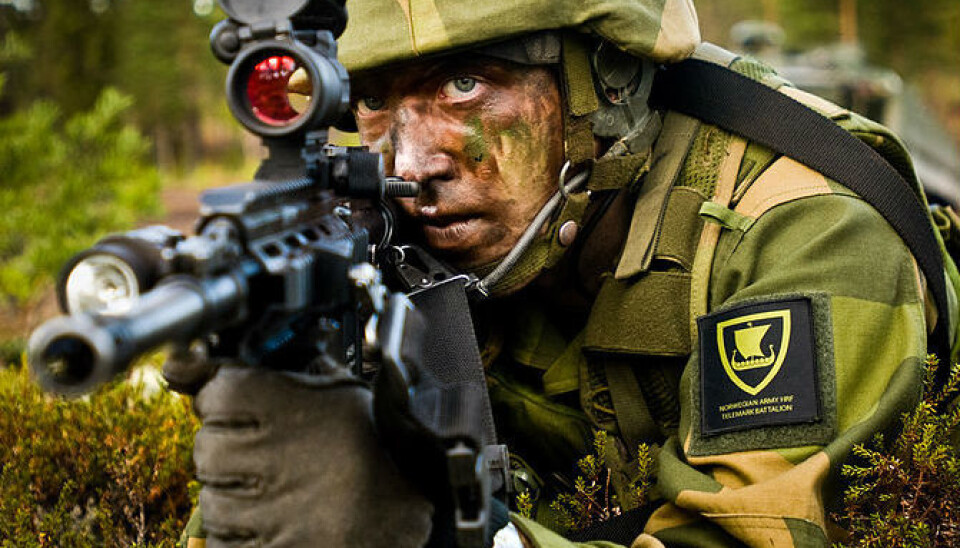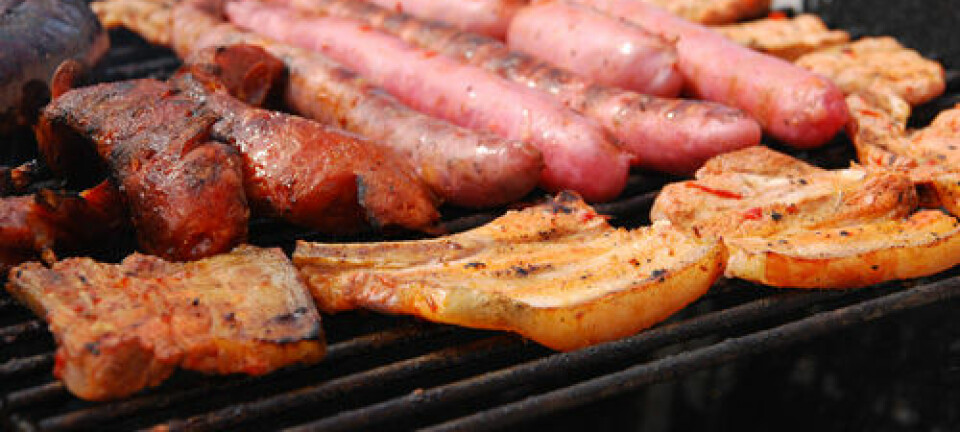An article from University of Oslo

Why Norwegian soldiers didn't approve of 'Meat free Monday'
In an effort to be environmentally responsible and to eat healthier, the Norwegian army decided to introduce a meat free day every week. But the soldiers were not impressed.
In 2013, the Norwegian Armed Forces decided to introduce a meat reduction scheme, by including Meat free Monday in the military mess halls. The initiative was due to both health reasons and environmental concerns. However, as of yet, Meat free Monday has not been implemented.
Charlotte Kildal and Karen Lykke Syse at the Centre for Development and the Environment at the University of Oslo have just published an article based on a study of the introduction of Meat free Mondays (MfM) in the Norwegian Armed Forces.
The study found significant barriers preventing the military from reducing meat consumption. The initiative was not anchored institutionally and interviews with soldiers in focus groups demonstrated their scepticism to eating less meat.
Lack of institutional ownership
The initiative was more or less launched through a newspaper article, and many chefs were caught by surprise.
As a result of poor institutional anchoring, resistance was fostered at several levels. Several chefs were unsupportive of the project, as they had not been briefed about the idea before it was launched in the newspaper.
Another reason why the initiative failed was low recognition of the significant environmental benefits of reduced meat consumption. Also, a lack of familiarity with vegetarian food among the soldiers, kitchen staff and central key policy makers in the Armed Forces.
Need for protein
During the study soldiers pointed to the high physical demands, number of exercises and need for protein to explain why they were negative to Meat free Mondays in military mess halls.
"Several of the soldiers were sceptical towards the meat reduction initiative as they were afraid a vegetarian meal would not offer the same comfort and saturation as meat," says Kildal.
This is illustrated in the following quote (from the study):
“The challenge with the vegetarian food is that I have to eat twice the amount to cover my needs. If I had a vegetarian dinner, I have to eat another big meal later in the evening.”
Because soldiers are expected to be strong, powerful and healthy, eating muscles to build muscles was regarded as a means to an end.
Meat for wellbeing?
The soldiers also linked physical and psychological wellbeing to meat-eating. They would highlight the physical characteristics of beef, the tenderness and texture of a piece of meat. One soldier claimed that “It is a feeling of mental wellbeing, when you consider the fact that it is pure and delicious meat.”
A recurring theme in the interviews was food as a means of comfort and reward, and meat was specifically emphasised. In every focus group discussion, the need for motivational, tasty and filling food was emphasized, says Kildal.
"Soldiers in our study embrace, embody and consume masculine values through eating meat, and this serves as a symbolic and physical means to maintain masculine ideology," says Syse.
“Ironic in an institution like the Norwegian Armed Forces”
The soldiers claimed an initiative like this simply served to ‘green-wash’ the institution.
“It [MfM] is ironic in an institution that uses tanks, trucks, fighter planes and a bunch of vehicles that have high emissions, and even leave the engine running.”
Accordingly, soldiers were sceptical to reduce meat consumption and felt that a decrease in meat consumption should be undertaken elsewhere.
A courageous initiative
Reducing high levels of meat consumption is important to address climate change, environmental degradation, global food security and chronic diseases. Public initiatives such as MfM may guide and educate sustainable food consumption.
"The Armed Forces should be given credit for their courage! We need courageous institutions that can promote sustainable alternatives. However the study has shown that the military was not quite ready for change yet," says Syse.
"It also shows that you need more emphasis must be given to the socio-cultural factors that drive consumption and to get key actors within the organsiasation on board before you start implementing the initiative. In the military, the socio-cultural barriers to meat reduction were many."
"When institutions like this choose to focus on an initiative like MfM, it is paramount that they take the time to convey the importance of their actions to the group whose diets they address," says Syse.
































